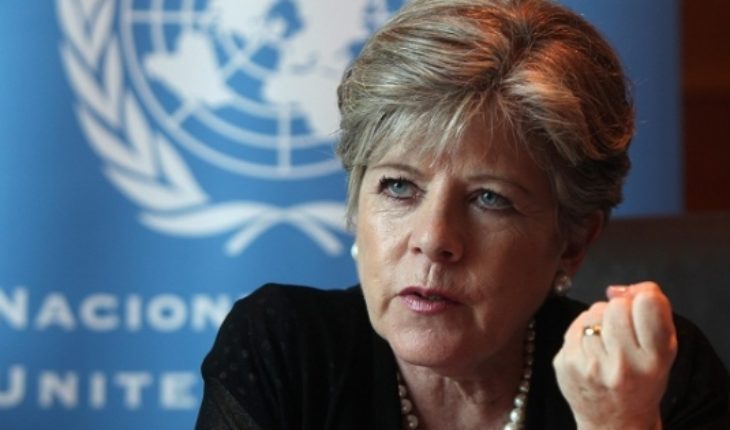The social crisis in Chile has created an uncertainty that has impacted heavily on the economy, which is reflected in a historic rise of the dollar that on Thursday closed at $830, even motivating a Ba intervention Central Nco.
Even the executive secretary of the Economic Commission for Latin America and the Caribbean (ECLAC), Alicia Bárcena, said she expects a “worrying economic performance”, when consulted on the country’s growth in the last quarter of the year, and in that sense questioned the work of the elite, particularly the country’s richest 1% and its contribution to the economy in terms of jobs and taxes.
“Are we really asking that richer 1% to contribute more to the economy on jobs? The social pact has to be reviewed,” he said.
Bárcena also maintained that there is concern about the situation in the country, stressing that in recent years it has been growing steadily, albeit reducing its growth levels.
“Of course there is concern, because in reality Chile has been growing steadily, of course, reducing its growth levels, our projection was around 2%, but yes, yes, it does worry because obviously there has been a drop in consumption, there has been a fall in economic activity in general, so obviously this third quarter maybe it’s going to have a worrying economic performance,” Bárcena said.
The executive secretary of Cepal noted that it would be interesting to see how growth engines are reactivated, indicating that it would be in an “inclusive way, so that the country may take off again next year, but already with a social and political consensus that accompany the economic project.”
On the other hand, Bárcena stated that “Chile will be very looked at in relation to how it solves this, because Chile always considered itself as the model of the neoliberal era and that I think is already left behind. Chile left it behind in fact a long time ago because it got into more active social policies, especially poverty and extreme poverty. But the truth is that Chile has an international name, and therefore what is done here is going to be very important for the rest of the region.”
Inequality in South America
Alicia Bárcena referred to the wave of protests that have occurred in several countries in South America, and attributed her cause to inequality, which “is certainly at the heart of disenchantment.”
“Income inequality, inequality of dealings. I would say that there is an urgent need to just review what is going on with these middle strata,” he said.
In this regard, Bárcena acknowledged that Chile has managed to reduce its rates of poverty and extreme poverty to “unsuspected levels”, highlighting that it is the third country in the region with the most money spent on social spending, with 16% of its GDP.
translated from Spanish: Cepal questions Chile’s 1% richest role in the face of social crisis: “Are we asking you to contribute more on taxes and jobs?”
November 28, 2019 |





